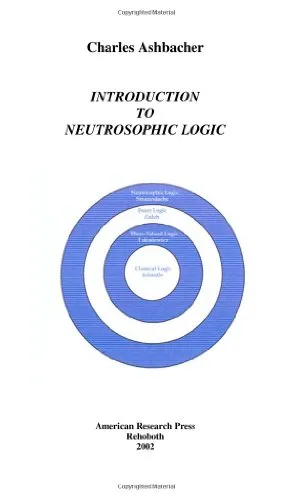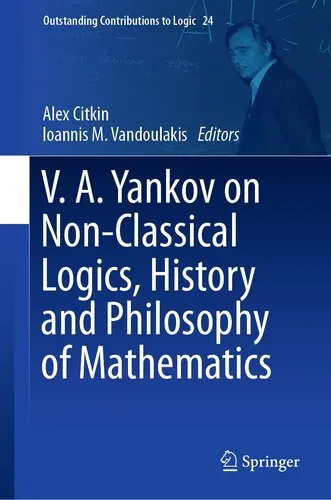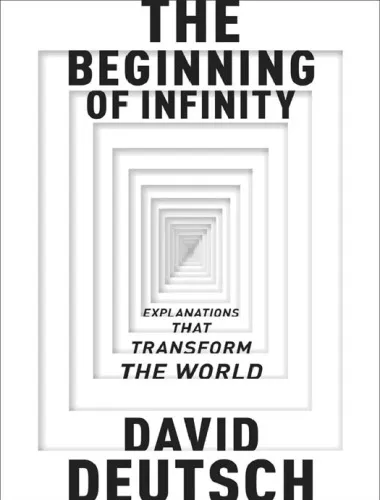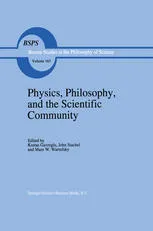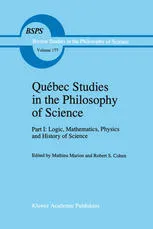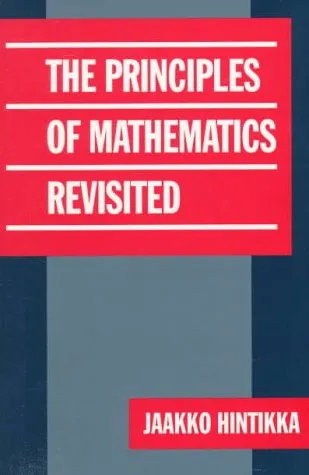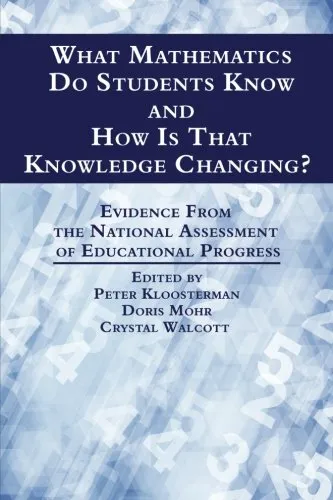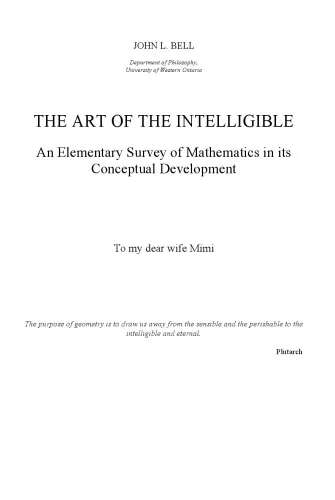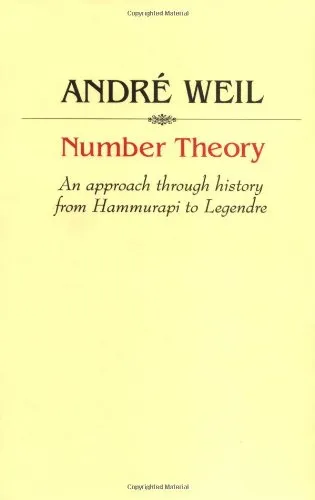Handbook of the History and Philosophy of Mathematical Practice
4.5
بر اساس نظر کاربران

شما میتونید سوالاتتون در باره کتاب رو از هوش مصنوعیش بعد از ورود بپرسید
هر دانلود یا پرسش از هوش مصنوعی 2 امتیاز لازم دارد، برای بدست آوردن امتیاز رایگان، به صفحه ی راهنمای امتیازات سر بزنید و یک سری کار ارزشمند انجام بدینکتاب های مرتبط:
مقدمهای بر کتاب "Handbook of the History and Philosophy of Mathematical Practice"
کتاب Handbook of the History and Philosophy of Mathematical Practice نوشتهی من، به بررسی عمیق و جامعی از تاریخچه، فلسفه، و کاربردهای متعدد ریاضیات در جوامع مختلف پرداخته است. این کتاب تلاش دارد تا خوانندگان را با جنبههای مختلف ریاضیات، فراتر از محاسبات و فرمولها، آشنا کند و نشان دهد چگونه این علم تأثیرات گستردهای بر فرهنگ، علم، و فلسفه داشته است.
خلاصهای جامع از کتاب
این کتاب به عنوان یک مرجع فراگیر، پانورامایی از تاریخ و فلسفه ریاضیات ارائه میدهد و به موضوعاتی همچون پیدایش مفاهیم ریاضی در تمدنهای باستانی، تحولات علمی قرون وسطی، و تأثیرات متقابل فنون ریاضی و فلسفی در دوران معاصر پرداخته است. هدف اصلی Handbook این است که مخاطبان را با دیدگاهی جدید به ریاضیات آشنا کند و ارتباطاتی عمیق میان علم و فلسفه برقرار کند. از کشفهایی نظیر اعداد اول گرفته تا مباحث پیچیده در حوزههایی مانند algebraic geometry و logic، این اثر تلاش کرده است تمام تجربههای ریاضیاتی بشر را در یک چارچوب یکپارچه ارائه دهد.
در این کتاب، تقسیمبندیهای دقیق و مشخصی وجود دارد که شامل تاریخچه ریاضیات، فلسفه علمی، و حتی استفادههای عملی و تمرینی ریاضیات در علوم دیگر میشود. برای مثال، نقش mathematical abstraction در توسعه علوم محض و بینشهای جدید درباره logic و infinity به شکلی هوشمندانه و تحلیلگرانه بررسی شده است.
نکات کلیدی کتاب
- تحلیل ارتباطات بین فلسفه علمی و ریاضیات در طی قرون مختلف.
- بررسی تغییرات بنیادی در مفاهیم ریاضی همچون infinity و symmetry.
- تأکید بر نقش ریاضیات در مفاهیم بنیادین علوم طبیعی و اجتماعی.
- درک تأثیرات فرهنگی و تاریخی پیشرفت علم ریاضیات.
جملات مشهور از کتاب
"ریاضیات، نه تنها زبان طبیعت است، بلکه پلی است که ذهن بشر را به ژرفترین مفاهیم فلسفی میبرد."
"درک مفاهیم ریاضی، به معنای درک تاریخچهای از تلاشها و چالشهای ذهن بشری است."
چرا این کتاب مهم است؟
Handbook of the History and Philosophy of Mathematical Practice یک مرجع بیبدیل برای دانشجویان، علاقهمندان، و پژوهشگرانی است که در حوزهی فلسفه، ریاضیات، و تاریخ علم کار میکنند. این کتاب، جدای از ارائهی شناخت ریاضیات به عنوان یک سیستم رسمی، به بررسی روح تاریخی و فلسفهای که در پس هر فرمول و مفهوم نهفته است، میپردازد. علاوه بر این، به خوانندگان کمک میکند تا نقش ریاضیات را در حل مسائل واقعی و درک بهتر پدیدههای طبیعی دریابند.
خواندن این اثر به ویژه در عصری که ارتباط ریاضیات و سایر علوم روز به روز قویتر میشود، بینشی منحصر به فرد درباره تعاملات علمی و تفکر متقابل فراهم میکند. افزون بر این، سبک نگارش این کتاب به گونهای طراحی شده که برای متخصصان و حتی علاقهمندان عمومی نیز تعاملی و قابل دسترس است.
Introduction to the Handbook of the History and Philosophy of Mathematical Practice
The Handbook of the History and Philosophy of Mathematical Practice serves as a comprehensive exploration of the rich tapestry of mathematics, interweaving historical developments with philosophical reflections. Edited and co-authored by Bharath Sriraman, this monumental work takes readers on a detailed journey through the evolving landscape of mathematics, delving into its applications, methodologies, and the intricate conceptual frameworks that have defined mathematical thought across centuries.
Mathematics is not merely numbers, equations, or abstract constructs — it is a human enterprise deeply embedded in culture, society, and the quest for understanding the universe. This book underscores mathematics as a dynamic practice shaped by its historical context, philosophical underpinnings, and human creativity. Spanning diverse topics, the handbook invites readers to reflect on fundamental questions: How has mathematical knowledge evolved? What philosophical issues inform mathematical practice? And how has mathematics influenced, and been influenced by, other disciplines?
The Handbook of the History and Philosophy of Mathematical Practice is a valuable resource for mathematicians, philosophers, historians, educators, and inquisitive minds. It bridges the often-perceived gulf between the technical nature of mathematics and the broader humanistic aspects that give it meaning, fostering a more profound appreciation of what it means to "do" mathematics.
Detailed Summary of the Book
At its core, this book is a scholarly yet accessible exploration of the interplay between mathematics' historical progression and its philosophical quandaries.
The handbook is organized thematically, addressing pivotal themes like the impact of the ancient mathematical traditions, the implications of algebraic abstraction in the 19th century, and the philosophical challenges presented by developments in logic and computation in the 20th century. Each chapter, written by a renowned expert in the field, offers readers historical depth and philosophical breadth, shedding light on how mathematical ideas emerge and evolve in response to the challenges, questions, and demands of their time.
Special attention is devoted to the human dimension of mathematics. The book showcases the lives, struggles, and triumphs of pioneering mathematicians, highlighting their intellectual contributions and the socio-cultural contexts in which they worked. From Euclid to Gödel, from ancient Greece to the digital revolution, the handbook covers a vast spectrum of topics, making connections between seemingly disparate eras and disciplines.
Through thoughtful analysis and rich narratives, the handbook captures the profound unity of mathematics as a discipline while celebrating its incredible diversity. It challenges its readers to see mathematics not only as a tool for solving real-world problems but also as a deeply philosophical pursuit of truth, beauty, and understanding.
Key Takeaways
- Mathematics is a dynamic, evolving practice shaped by historical, cultural, and societal influences.
- The philosophical questions surrounding mathematics—such as its nature, truth, and applicability—remain central to its development.
- Understanding historical contexts can enrich one's appreciation of modern mathematical ideas and practices.
- The lives and works of great mathematicians demonstrate how personal and cultural factors influence mathematical discovery.
Famous Quotes from the Book
"Mathematics is at once both an art of abstraction and a science of applicability — a duality that defines its power and its mystery."
"History teaches us that mathematical ideas do not emerge in isolation, but as a dialogue across generations, cultures, and disciplines."
"To philosophize about mathematics is to explore the very fabric of human thought."
Why This Book Matters
The Handbook of the History and Philosophy of Mathematical Practice matters because it provides a rare and invaluable intersection of two highly specialized fields: the history of mathematics and its philosophy.
Mathematics is often taught and understood as a set of disjoint concepts, devoid of the context in which they were created. By addressing the historical evolution and philosophical significance of mathematical ideas, this book fills a critical gap. It fosters a deeper appreciation of mathematics beyond just formal theories and solutions, encouraging readers to engage with its human, cultural, and epistemic dimensions.
Further, by highlighting the philosophical challenges in mathematics, the book inspires reflection on profound questions that continue to shape the field. As we navigate an increasingly data-driven and technologically complex world, understanding the origins and implications of mathematical practices becomes ever more crucial. This handbook is a timeless contribution to that understanding, making it indispensable to students, scholars, and anyone interested in the profound intellectual tradition of mathematics.
دانلود رایگان مستقیم
شما میتونید سوالاتتون در باره کتاب رو از هوش مصنوعیش بعد از ورود بپرسید
دسترسی به کتابها از طریق پلتفرمهای قانونی و کتابخانههای عمومی نه تنها از حقوق نویسندگان و ناشران حمایت میکند، بلکه به پایداری فرهنگ کتابخوانی نیز کمک میرساند. پیش از دانلود، لحظهای به بررسی این گزینهها فکر کنید.
این کتاب رو در پلتفرم های دیگه ببینید
WorldCat به شما کمک میکنه تا کتاب ها رو در کتابخانه های سراسر دنیا پیدا کنید
امتیازها، نظرات تخصصی و صحبت ها درباره کتاب را در Goodreads ببینید
کتابهای کمیاب یا دست دوم را در AbeBooks پیدا کنید و بخرید
1352
بازدید4.5
امتیاز0
نظر98%
رضایتنظرات:
4.5
بر اساس 0 نظر کاربران
Questions & Answers
Ask questions about this book or help others by answering
No questions yet. Be the first to ask!
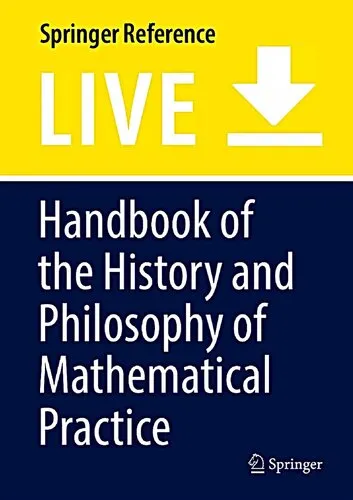

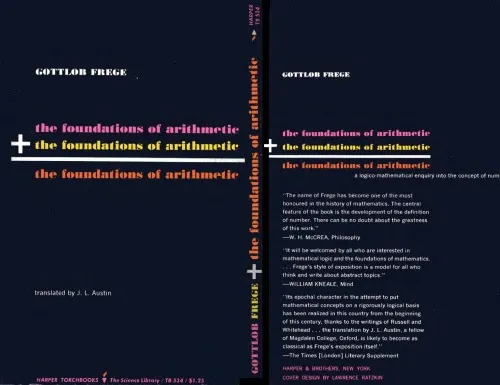
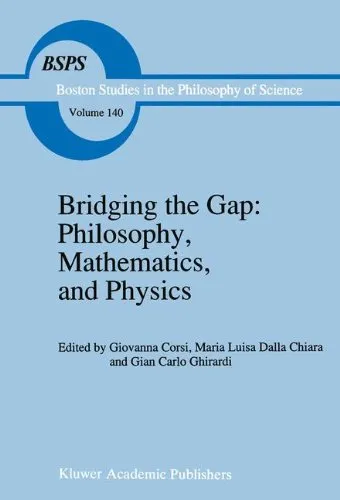
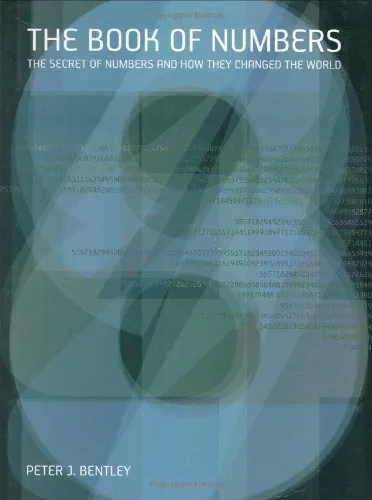
![The Mathematical Experience [Study Edn.]](https://s3.refhub.ir/images/thumb/The_Mathematical_Experience__Study_Edn_16194.webp)
